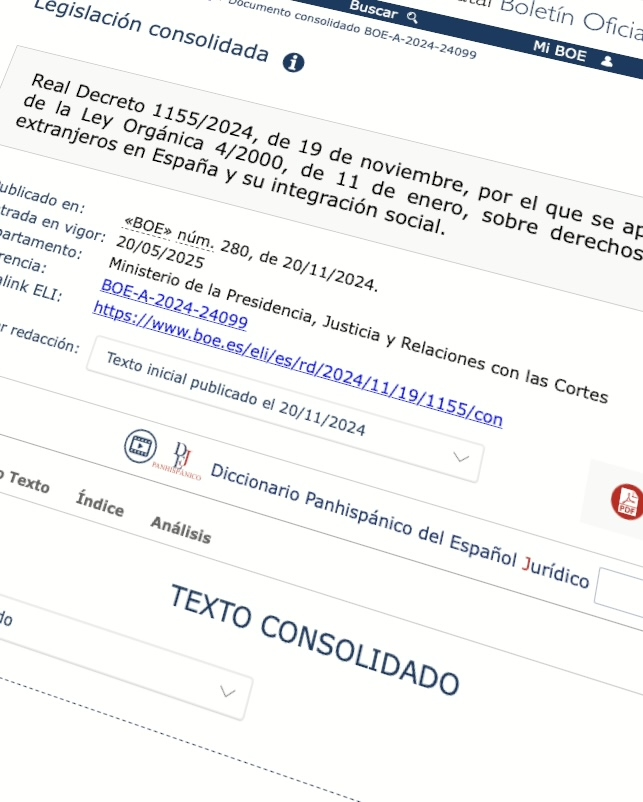On 19 November 2024 the Spanish Parliament passed the bill for the new Immigration Regulations that will come into force on 20 May 2025, replacing the current regulations which date from 2011.
In the mean time, the current regulations, dating from 2011, will apply for any new visa applications or extension of residence authorisations. The new text, though, includes transitional arrangements for, at the time of its coming into force in 2025, maintaining the validity of existing visas or residence cards (TIE) obtained under the old regulations. Also, any applications which have not been decided by 20 May 2025, will still be decided under the old rules, although applicants may request they are decided under the new regulations, provided they meet any new requirements.
The new regulations set some clarity on how and who takes decisions on visas and residence authorisations. They also set the grounds for approximately 300,000 migrants whose application for refugee status has been refused and have physically been present in Spain for six months at the relevant date, to apply for residence authorisations.
A new residence permit model for relatives of Spanish citizens has been established. This will especially benefit for those who have acquired Spanish citizenship by naturalisation, as the range of relatives they can bring now has increased.
A novelty is that national visas -as opposed to Schengen visas- will now be valid for 12 months from issuing date, although anyone staying longer than six months will have to apply for a TIE card.
For those who have obtained non-lucrative residence, you may be aware that in 2023 the Supreme Court declared void a provision which established that holders of temporary residence authorisations could not be physically absent from Spain for longer than six months in a year, else their residence permit would become invalid. Well, the new Regulations bring a similar provision which requires physical presence in Spain longer than 183 days in one year in order to apply for an extension of the non-lucrative residence permit. Our view is that such restriction will have to be addressed before 20 May by modifying the Spanish Immigration law. Regulations are secondary legislation, and they cannot set certain requirements unless there is an enabling primary legislation which allows it. It was the lack of this which effectively resulted in the Supreme Court declaring void the previous requirement.
In future post we will analyse further the new Regulations, especially as they affect popular visas among expats.
In the mean time, if you have any queries or want to apply for a Spanish visa, do not hesitate to contact us for a free email initial consultation.


Leave a Reply